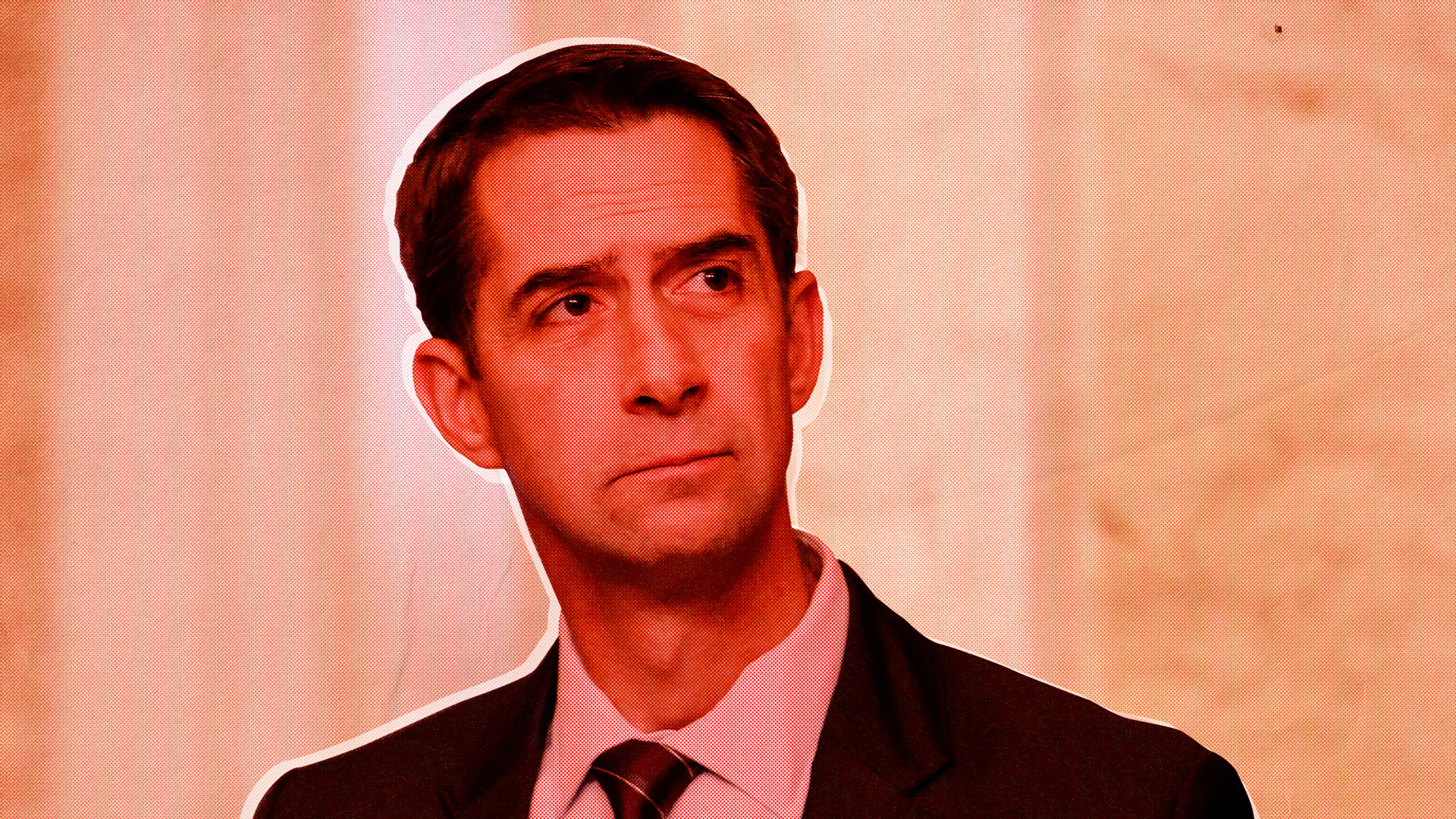Early this week, protesters around the country organized to stop or delay car traffic in several major cities — San Francisco, Seattle, Chicago, and New York — to draw attention to the ongoing horrors in Gaza. Their tactics included no threats and no attacks; they didn’t do any physical damage to the infrastructure or harm anyone. Instead, following a long tradition, these protesters simply used nonviolent civil disobedience as a means of challenging government policy. They wanted lawmakers to hear their message, and they were willing to make major (and peaceful) disruption to do it.
So naturally, U.S. Senator Tom Cotton of Arkansas called for these protests to be met with violent reprisals. According to this federal elected official, when stalled in traffic by peaceful protesters, drivers should leave their vehicles and use force against their fellow citizens over a minor disruption. Not exactly what democracy looks like.
Of course, this isn’t the first time Senator Cotton has called for violence against people using their First Amendment rights. In an infamous 2020 editorial for The New York Times, Cotton suggested that the George Floyd protests should provoke a military response. At that point, thousands of Americans in almost every locale had emerged from pandemic protocols to engage in one of the largest mass protests in U.S. history, and Tom Cotton thought the appropriate government response was threatening to shoot citizens with bullets that they paid for. In the moment, his defense of this unconstitutional reaction rested on the thin distinction between “protesters” and “rioters.” Four years later, he’s not even trying to be subtle: He wants to attack people who politically disagree with him, and he thinks it’s okay for his ideological fellow travelers to do the same.
Such blatant disregard for constitutional rights isn’t new: That contempt led to the violent dispersion of the infamous “Bonus March” where WW1 veterans camped out, seeking their promises benefits, produced many of the iconic images of abuse from the Civil Rights Movement, including the photographs of children being hit by firehoses and attacked by dogs, and forced anti-war protesters into “free speech zones” during the 2004 Republican convention in New York. As frequently as citizens have used our right to peaceably assemble for the government we want, the one we have has deployed force and condoned violence to undermine us.
But just because it is a common response doesn’t make it a fair or acceptable one. Over the decades, we have had aggression and abuse against nonviolent protest normalized with comments from the likes of Senator Cotton, who has put himself in the company of Bull Connor and George Wallace with his brutal disregard for peaceful political disagreement. Leaders like him introduce instability and conflict to the simple and necessary act of demanding more from our government, and in doing so, make all of us less safe.
The reason Senator Cotton and his ilk bring violence to bear when citizens ask for improvement is because they can’t win the argument on the merits. It’s no coincidence that he signed onto the defense of January 6th insurrectionists who tried to capture and possibly kill members of Congress while turning around and attacking peaceful protesters trying to stop a war. He doesn’t want to limit violence; he wants to wield it.
But the right to peaceably assemble remains foundational to a democratic society, and we should use every attack on that right as an opportunity to defend it. The ability to nonviolently protest and petition our government comes from the miseries of the Revolution, when the Founding generation had their demands for equality returned with a volley of gunfire. Almost two and a half centuries later, Senator Cotton shows why that right is immortal, by becoming the tyranny we were built to reject.



















































